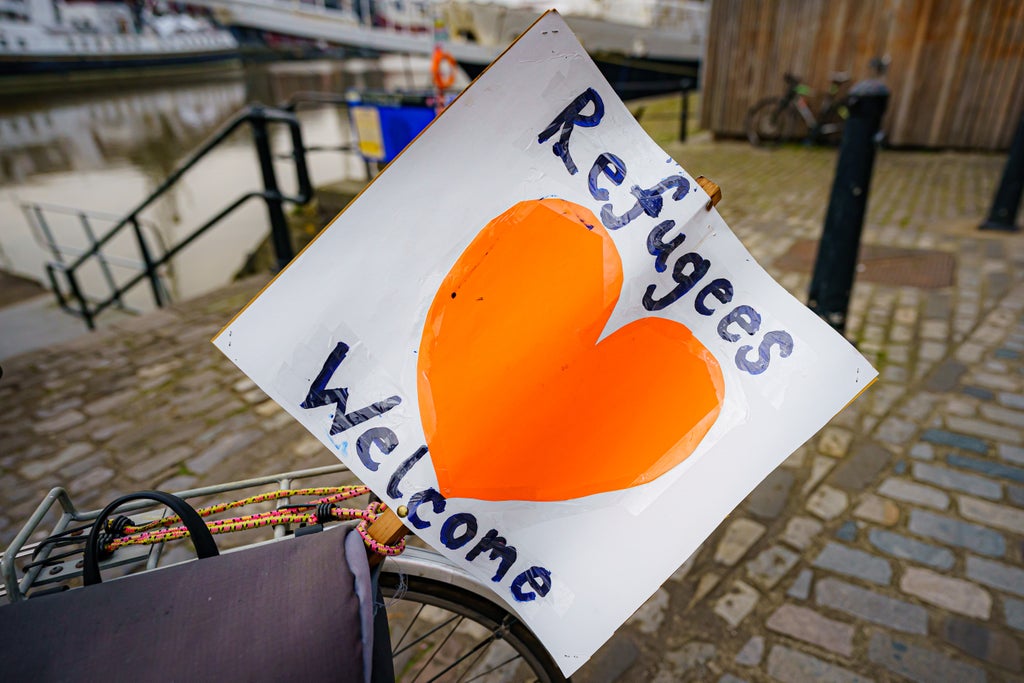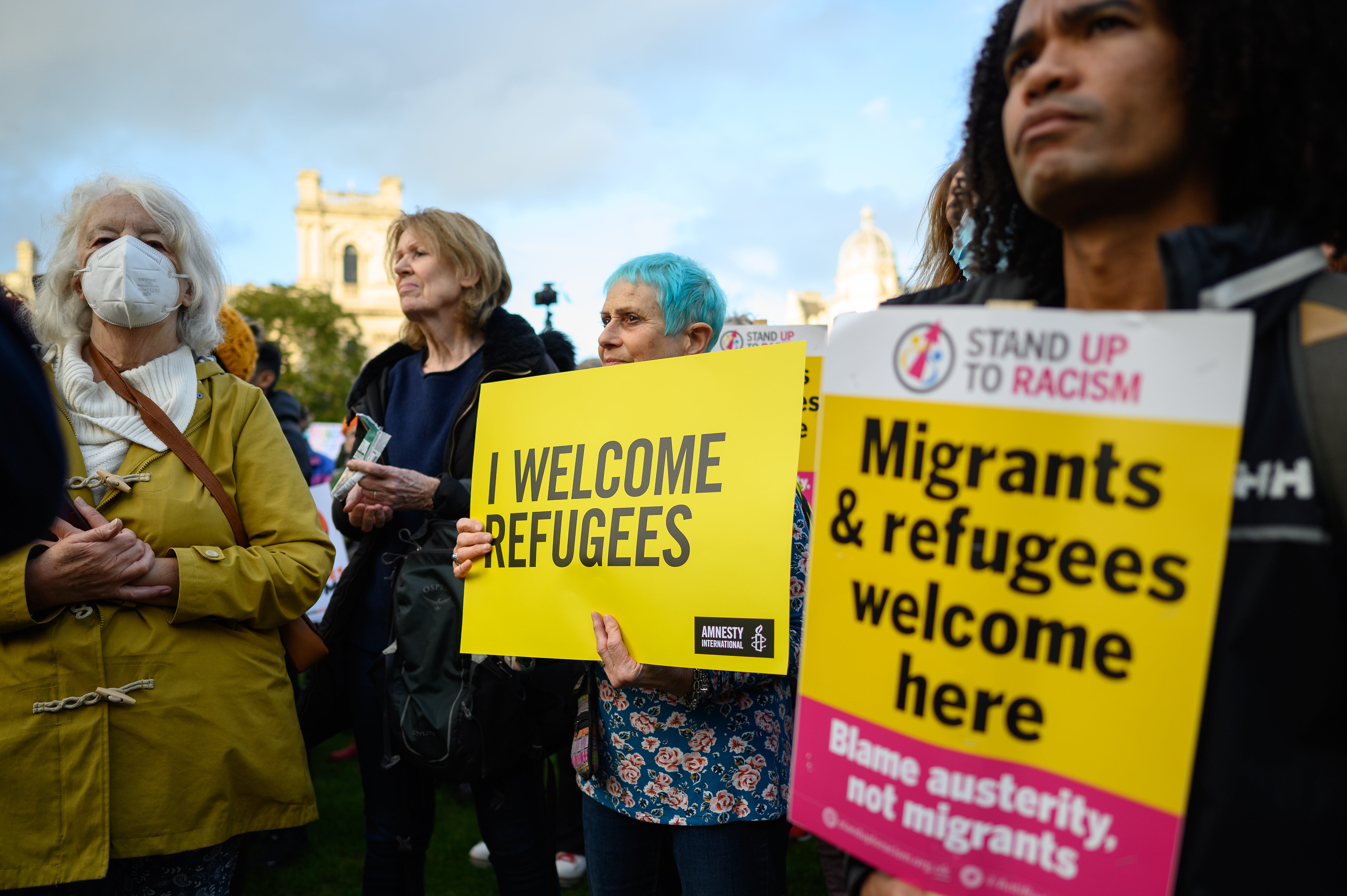
Ukrainian and Afghan refugees in the UK could be housed in B&Bs indefinitely under new laws quietly pushed through by the government, prompting accusations of a “two-tier system” of housing support.
An amendment to homelessness laws on Wednesday states the six-week limit homeless families can spend in B&B accommodation will no longer apply to refugees who have fled from Ukraine and Afghanistan.
The changes also set out that councils can place these groups out of area – potentially hundreds of miles away – without taking into account factors such as the disruption to employment and education and access to medical facilities or other support.
An explanatory memorandum on the law changes, prepared by the Department for Levelling Up, Housing and Communities (DLUHC), states that they are designed to “help local authorities manage an increase in homelessness pressures as a result of two new humanitarian crises”.

But housing charity Shelter has warned the move “crosses a red line” by “taking away the hard-won rights” of some homeless people, as well as creating a “two-tier system that singles out refugees and strips away their homeless rights”.
The Independent’s Refugees Welcome campaign has called on the UK government to do more to help those escaping danger in Afghanistan and the Ukraine.
A survey of councils by the Local Government Association at the beginning of April revealed that 144 Ukrainian households had presented as homeless across 190 local authorities since the start of the war. The figure is believed to have increased significantly since then but the government would not give a figure.
The government has since carried out its own survey on the number of Ukrainian families who have registered as homeless, but it is refusing to publish the resulting data.
Under homelessness laws, it is illegal for local authorities to place families and pregnant women in B&Bs unless there is no other housing available, and in those cases, it must be for a maximum of six weeks.
They also stipulate that before a homeless family is placed out of area the local council must consider a number of factors, including the significance of any disruption to employment or education and proximity to and accessibility of medical facilities.
But the changes mean those rules will no longer apply to anyone who arrived in the UK in the past two years and who has not had settled accommodation in the UK in the three years prior to their arrival. The new regulations are directed primarily at Ukrainian and Afghan refugee households.
The explanatory note states: “These regulations will mean that local authorities will be able to house those who have recently arrived in the UK in B&B accommodation for more than six weeks.
“In addition, it will mean that for newly arrived households, local authorities will not be required to consider most factors before placing a household out of area (apart from caring responsibilities in respect of family associations), reducing the burden on local authorities facing the greatest pressures and who are most likely to need to place households out of area.”
Official data shows 46,100 people who have fled the Russian invasion have so far come to the UK under its two designated visa schemes - Homes for Ukraine, whereby they can join hosts in the UK, and the Ukraine Family scheme, under which they can join relatives.
However, a considerable number of these families have been forced to register as homeless with local authorities after their placements have broken down or have been overcrowded.
Meanwhile, around 12,000 Afghans who were evacuated to the UK in August following the Taliban takeover, or have been transferred since, are still in hotels waiting for appropriate housing. The Independent understands they will soon be forced to leave the hotels.
The document states the changes, which will come into effect on 1 June 2022 and will be reviewed a year later, are “appropriate and proportionate”.
Polly Neate, chief executive of Shelter, told The Independent: “The government has crossed a red line by taking away the hard-won rights of some homeless people. It is appalling to set up a two-tier system that singles out refugees and strips away their homeless rights.
“Allowing councils to accommodate homeless refugees literally anywhere, with no way challenge where they are sent, is callous and cruel.”
She called on ministers to withdraw the “damaging” regulations, adding: “We are talking about people who’ve fled conflict or persecution, and gone through the strain of homelessness, only to be sent miles away from the place they’ve started to settle.
“This could mean children who’ve been finding their feet at school and making new friends will have to begin all over again – many of whom are recovering from extreme trauma.”
Clive Betts, Labour MP and chair of the Levelling Up, Housing and Communities Committee, said the changes were the “completely wrong answer” to the Ukrainian refugee homelessness crisis. He said ministers should instead focus on allowing those whose family scheme placements have broken down to move in with UK residents who are willing to sponsor refugees.
“People have been through trauma and horrors we can’t begin to imagine. What they want is to settle down in a nice homely environment, and they’re going to stick them in B&Bs for an indefinite amount of time. This cannot be right,” the MP added.
A DLUHC spokesperson said: “These temporary changes will only be used as a last resort and will ensure families are not without a roof over their heads. Councils will have to exhaust all other options before placing families in B&B accommodation.”







